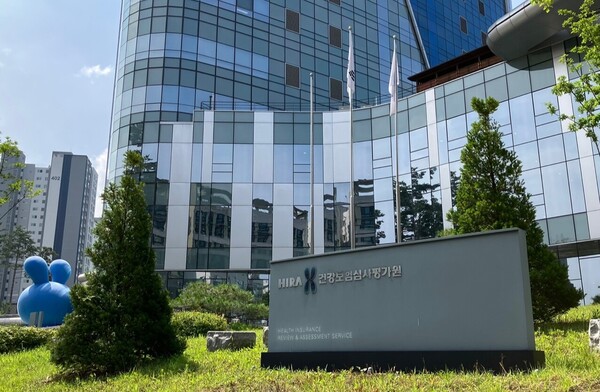Calls are mounting from patients for the early provision of insurance benefits for Columvi IV (glofitamab), the first bispecific antibody for diffuse large B-cell lymphoma (DLBCL).
Columvi was approved in Korea on Dec. 3, 2023, as a third-line treatment for adult patients with relapsed or refractory DLBCL after two or more systemic treatments. However, on July 10 this year, it failed to pass the reimbursement threshold of the Cancer Disease Review Committee (CDRC).

On Thursday. the Korea Leukemia Patients Organization called for re-tabling and passing Columvi at the seventh CDRC meeting scheduled for October. It also requested that Roche Korea provide a reasonable financial sharing plan for patients needing Columvi treatment.
Columvi won approval from the U.S. Food and Drug Administration (FDA) on June 15, 2023, and from the European Medicines Agency (EMA) on July 7 of the same year. Columvi has won insurance benefits in the U.K., Germany, and Italy. Still, it is unclear if it will be tabled again at the CDRC meeting and pass the first gateway to reimbursement in Korea.
DLBCL is the most common type of non-Hodgkin's lymphoma, accounting for about 40-50 percent of all cases. It is characterized by abnormal growth or proliferation of the body's protective B cells, resulting in rapid disease progression and a poor prognosis with repeated treatments. As the first bispecific antibody in lymphoma, Columvi is an immediate third-line treatment for adult patients with relapsed or refractory diffuse large B-cell lymphoma after two or more systemic therapies, when death can occur within months.
Columvi, like Novartis's chimeric antigen receptor T-cell (CAR-T) therapy Kymriah (tisagenleclucel), is a third-line treatment for diffuse large B-cell lymphoma. The two drugs have different strengths and weaknesses, significantly improving drug options for patients and physicians. In particular, for patients treated in hospitals where CAR-T (chimeric antigen receptor T-cell) therapy is unavailable or whose systemic conditions make them ineligible for CAR-T, Columvi is an important life-saving and life-prolonging alternative.
“Columvi is available on unreimbursed formulary at many tertiary general hospitals, and patients with diffuse large B-cell lymphoma who have failed all other therapies are eagerly awaiting expedited health insurance coverage,” the patient group said.
To ensure that these patients can be treated with Columvi quickly, Roche Korea should come up with a reasonable and socially acceptable financial sharing plan. The government, as the ultimate guardian of public health, should fully consider that Columvi is a treatment of last resort for patients who have failed two or more treatments, the group added.
Related articles
- ‘Patients’ opinions should be reflected in reimbursing expensive drugs’
- ‘Bispecific antibody Epkinly shows miraculous results in 3rd-line treatment of DLBCL'
- Besremi passes cancer drug reimbursement panel in 2nd try
- ‘Domestic DLBCL secondary care landscape at its most vulnerable’
- Hematology society urges retention of insurance coverage for expensive CAR-T treatments
- ‘As bispecific antibodies change DLBCL treatment paradigm, Epkinly draws attention’

